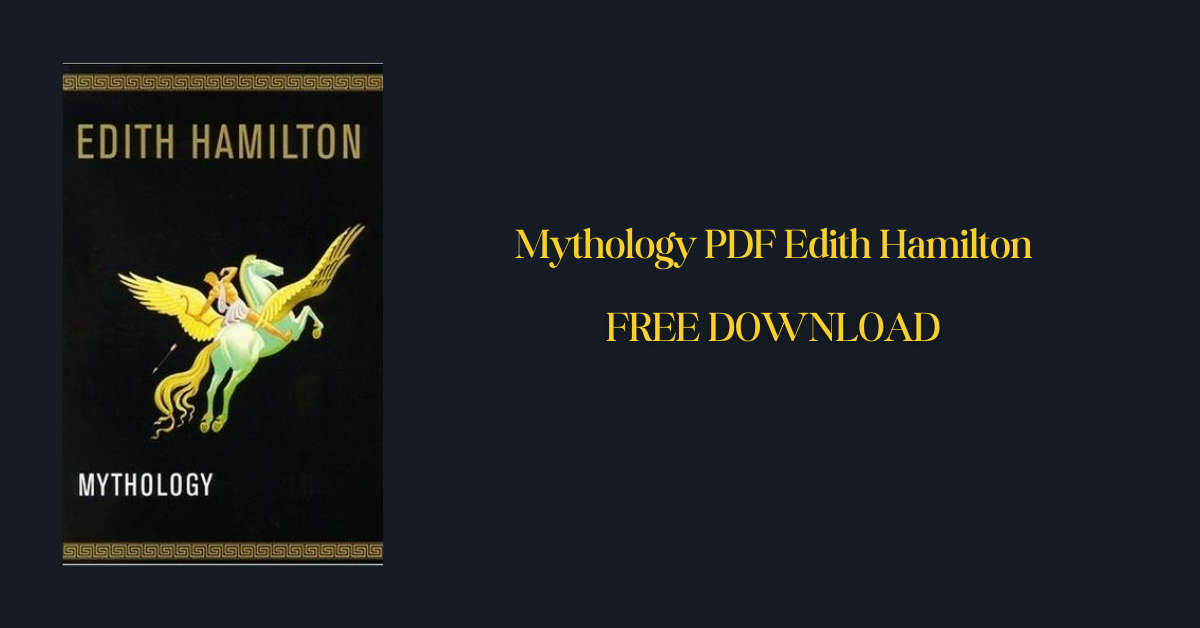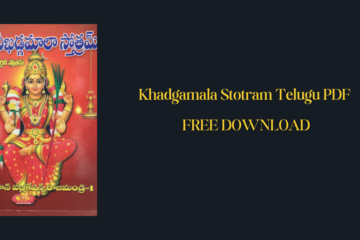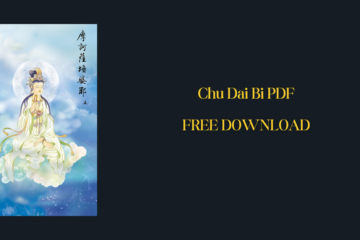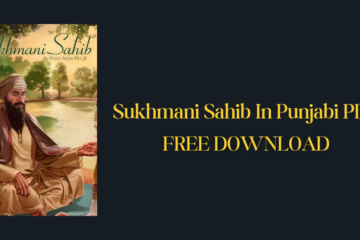Mythology, a timeless realm of gods, heroes, and epic tales, has captivated human imagination for millennia. It serves as a window into the collective psyche of civilizations, offering profound insights into their beliefs, values, and fears.
Among the luminaries who have ventured into this enigmatic domain, Edith Hamilton stands as an eminent figure. Her magnum opus, “Mythology,” has not only unlocked the secrets of ancient stories but has also brought these narratives to life for generations of readers.
| Name of the PDF | Mythology PDF |
| No. of pages | 339 |
| Genre | Folklore or theology |
| Language | English |
| Drama PDF | Click Here |
Also Download
Wilson’s Fourteen Points And The Treaty Of Versailles PDF
Warriors Don’t Cry PDF – Free Download
Summary of Mythology
Mythology is a comprehensive exploration of Greek, Roman, and Norse mythology, delving into the captivating tales of gods, goddesses, and legendary heroes.
The narrative begins with creation myths, detailing the origins of the universe and primordial deities, and then progresses through stories of major gods such as Zeus, Hera, Apollo, and Athena, each with distinct personalities, domains, and mythological exploits.
The intricate family dynamics among the gods, marked by conflicts and alliances, add depth to the narrative.
Hamilton skillfully interweaves the adventures of mortal heroes, including Hercules, Perseus, and Theseus, who face formidable challenges and undertake heroic quests, illustrating themes of bravery, destiny, and the consequences of hubris.
Tragic stories of figures like Oedipus and Prometheus highlight the complex relationships between gods and mortals.
The book also extends its exploration beyond Greek mythology, incorporating Roman and Norse myths. Readers encounter Roman counterparts of Greek deities and become acquainted with the captivating Norse pantheon, featuring gods like Odin, Thor, and Loki.
Throughout the narrative, Hamilton provides insightful commentary, connecting the myths to universal human experiences and explaining their enduring relevance. The prose is accessible and engaging, making mythology accessible to a wide audience.
Characters of Mythology
Mythology features a plethora of characters from Greek, Roman, and Norse mythology. Here are some key figures:
Greek Mythology
- Zeus: King of the gods, ruler of Mount Olympus.
- Hera: Queen of the gods and Zeus’s wife, associated with marriage and childbirth.
- Athena: Goddess of wisdom, warfare, and strategic tactics.
- Apollo: God of the sun, music, poetry, and prophecy.
- Hercules: A mortal hero known for his incredible strength and twelve labors.
- Perseus: Hero who slays the Gorgon Medusa and rescues Princess Andromeda.
- Theseus: Hero who navigated the Labyrinth and defeated the Minotaur.
Roman Mythology (Roman equivalents of Greek gods)
- Jupiter: Equivalent to Zeus, king of the Roman gods.
- Juno: Equivalent to Hera, queen of the Roman gods.
- Minerva: Equivalent to Athena, goddess of wisdom and war.
Norse Mythology
- Odin: Chief of the Aesir gods, associated with wisdom and war.
- Thor: God of thunder, lightning, storms, oak trees, strength, the protection of mankind.
- Loki: Trickster god, often causing trouble for the gods.
Others
- Oedipus: Tragic hero of Greek mythology, known for fulfilling a prophecy unknowingly.
- Prometheus: Titan who stole fire from the gods to benefit humanity.
- Medusa: Gorgon with snakes for hair, turned people to stone with her gaze.
Themes and Symbolism Explored in Mythology
Within the rich tapestry of Greek, Roman, and Norse myths, Hamilton masterfully explores a myriad of themes and symbolism that continue to resonate with readers today.
Themes
Fate and Destiny: The concept of fate and the inevitability of one’s destiny are recurring themes in the myths. Characters often grapple with predetermined paths and struggle against or fulfill their destinies.
Hubris and its Consequences: Hubris, or excessive pride and arrogance, is a theme explored through various characters. The myths frequently illustrate the consequences of defying or disrespecting the gods, emphasizing the importance of humility.
Heroism and Sacrifice: The stories of heroes like Hercules and Perseus highlight the heroic journey, often involving great challenges, sacrifices, and moral dilemmas. Heroic qualities, such as courage and perseverance, are celebrated.
Love and Betrayal: Love and its various forms, from familial to romantic, are woven throughout the myths. Betrayals, often stemming from jealousy or desire, lead to tragic consequences.
The Power of Knowledge: Wisdom and intelligence are valued attributes in many myths. Athena, as the goddess of wisdom, embodies the pursuit and application of knowledge, while figures like Prometheus bring enlightenment but face repercussions.
Symbolism
The Thunderbolt (Zeus): Zeus’s thunderbolt symbolizes his power and authority. It is a recurring motif representing divine might and the ability to wield forces of nature.
Olive Tree (Athena): The olive tree, a gift from Athena to the city of Athens, symbolizes peace, prosperity, and the goddess’s protective influence.
The Golden Fleece (Jason and the Argonauts): The quest for the Golden Fleece represents the hero’s journey, full of challenges and trials, showcasing the pursuit of glory and the overcoming of obstacles.
The Labyrinth (Theseus and the Minotaur): The labyrinth is a symbol of complexity and challenge, representing the intricate nature of life’s journey and the need for strategy and perseverance.
The Norse World Tree (Yggdrasil): Yggdrasil symbolizes the interconnectedness of all things in Norse mythology, linking the realms of gods, humans, and the underworld.
Title Analysis of Mythology
The title Mythology is both simple and all-encompassing. It suggests an exploration of myths – traditional stories, legends, and beliefs that explain the world’s origins, natural phenomena, and cultural customs.
Hamilton’s choice of this title signals a broad survey of myths from various traditions, including Greek, Roman, and Norse. It hints at a universal exploration of timeless tales, inviting readers into the diverse world of ancient myths and cultures.
The simplicity of the title also reflects the book’s accessibility, making it clear that readers will embark on a journey into the realm of myths without specifying a single cultural focus. This aligns with the book’s purpose of introducing a diverse audience to classical mythology.
Conclusion
Mythology by Edith Hamilton is a timeless and captivating exploration of Greek, Roman, and Norse myths. The book skillfully weaves narratives that unveil the intricate relationships between gods and mortals, delving into themes of fate, heroism, and the consequences of hubris.
Edith Hamilton’s accessible prose and insightful commentary provide readers with a comprehensive understanding of the mythological world.
The characters, ranging from powerful gods like Zeus and Athena to mortal heroes such as Hercules and Perseus, come to life through the pages, each contributing to the larger tapestry of cultural and moral lessons.
FAQs
What is the purpose of “Mythology” by Edith Hamilton?
“Mythology” serves as an informative and accessible exploration of Greek, Roman, and Norse myths, providing readers with a comprehensive understanding of classical mythology.
What myths are covered in “Mythology”?
The book covers a wide range of myths from Greek, Roman, and Norse mythology, including stories of gods, goddesses, and heroic figures.
Is “Mythology” suitable for readers unfamiliar with classical myths?
Yes, “Mythology” is designed to be accessible to readers unfamiliar with classical myths. Edith Hamilton provides clear explanations and commentary to make the myths understandable and engaging.
Are the myths in “Mythology” presented in chronological order?
The book is organized thematically rather than chronologically, grouping related myths to provide a cohesive exploration of various themes.
Does “Mythology” only cover Greek myths?
No, “Mythology” covers Greek, Roman, and Norse myths, offering a broader perspective on classical mythology.
What commentary does Edith Hamilton provide in the book?
Edith Hamilton offers insightful commentary that connects the myths to universal themes, cultural contexts, and their relevance to the human experience

Niketa Mulay, a seasoned content writer and editor, has over a decade of experience. With a Master’s in Journalism, she honed her skills at The Times of India and now freelances across various industries. Passionate about reading, writing, and scuba diving, she shares expert PDF guides and tips at PDFdrivehub.com.




